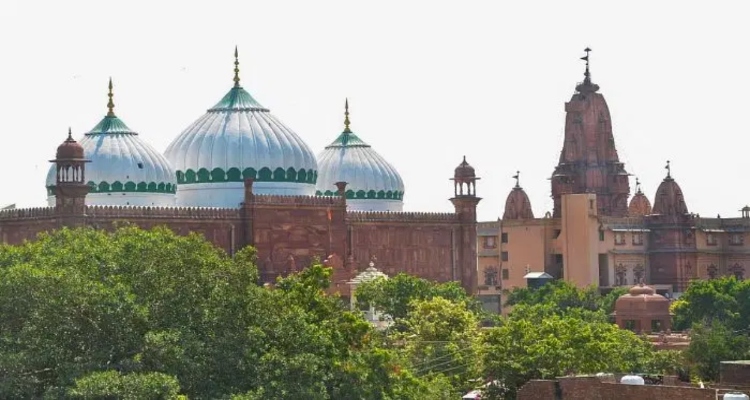
The Allahabad High Court has scheduled March 20 as the next hearing date for a case challenging the legality of a suit aiming for the ‘removal’ of the Shahi Idgah mosque in Mathura, purportedly constructed on a 13.37-acre land belonging to the Katra Keshav Deo temple.
Representatives of the Muslim party informed the court that the suit seeking the mosque’s ‘removal’ near the Krishna Janmabhoomi temple is time-barred according to legal limitations.
Following deliberation, Justice Mayank Kumar Jain set March 20 for the subsequent hearing. Continuing her earlier arguments, counsel Taslima Aziz Ahmadi, representing the Muslim party via video conference, contended that the suit is constrained by legal limitations.
Ahmadi pointed out that a compromise was reached between the parties on October 12, 1968, and confirmed in a civil suit finalized in 1974. The legal timeframe for challenging such a compromise is three years, yet the suit was filed in 2020, rendering it time-barred.
The court also directed the Muslim party to submit objections by March 20 regarding an application seeking orders to ensure Hindu devotees are not hindered from worshiping at the Krishna Koop within the Shahi Idgah premises in Mathura, alongside maintaining adequate security.
Furthermore, the Muslim party was instructed to file objections by the upcoming hearing date concerning the request for worship inside the Shahi Idgah premises on ‘Mata Sheetla Saptami’ (April 1) and ‘Mata Sheetala Ashtami’ (April 2) as per the Hindu calendar.
In a plea lodged by Ashutosh Pandey, it was noted that every year, Hindu devotees perform worship on the disputed property, known as ‘Bassoda Puja’. The petition highlighted that this year’s puja falls on April 1 and April 2, yet the defendants are obstructing them from conducting the ritual.
During the primary hearing, the Muslim party further argued that a suit has been filed for possession after the removal of the Shahi Idgah mosque structure, along with demands for the ‘restoration of the temple and permanent injunction’. This implies that the mosque’s structure still stands, and the management committee is in possession thereof, argued Ahmadi.
She contended that this raises a dispute regarding Waqf property, thus subjecting the matter to the provisions of the Waqf Act. Consequently, it is the jurisdiction of the Waqf tribunal, not a civil court, to adjudicate such matters. Overall, 18 suits have been filed concerning the Shahi Idgah-Krishna Janmabhoomi dispute.




